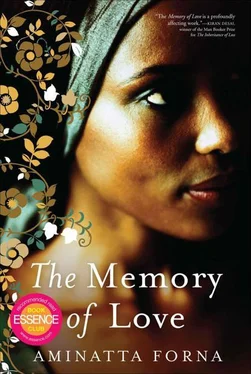Julius punched the air and shouted, ‘The Eagle has landed!’
The girl Yamba, gazing at him from atop a barstool, asked, ‘What eagle?’
‘The name of the lunar module,’ I explained. When she looked at me as though I had spoken in Dutch, I added, ‘The spaceship.’
‘What spaceship are you talking about?’
I explained the mission to the moon, which had evidently completely passed her alone in the world by, she continued to regard me in disbelief. Some part of our conversation caught Julius’s attention and he turned to listen, as did others. At the end of my account, she pointed to the night sky.
‘This small moon here.’
‘Of course, that moon.’
She drew in her chin, put her hands to her hips and her head to one side, assessing me for the possibility I was making a fool of her. ‘Well, tell me one thing,’ she said.
‘Of course.’
‘What kind of person would want to do a thing like that?’
At that Julius shouted with laughter and slapped his thigh, slopping his drink around in his glass.
‘Excellent! I should let you talk to some of my pupils. First principles. Why?’
‘To humiliate the Soviets,’ said Kekura. ‘This is the new scramble for Africa. The scramble for space. A hundred years ago it was us they were fighting over. Our land, our wealth, our souls.’
‘Yes, indeed.’ It was Ade, who had joined us in the last ten minutes. ‘And to stop the newspapers talking always about Vietnam, Vietnam.’
‘It’s hard to disagree.’ The writer-dancer spoke next. ‘But if it were me I know why I would do it.’
‘Why?’ asked Saffia.
‘To fly.’
Saffia said, ‘I like that.’
‘To fly,’ repeated Julius. ‘To test the limits of our endeavour, of our courage.’ He was serious. ‘Otherwise what point is there in being alive?’
Did I mention to you how young we were then? How very young?
A piece of street theatre was going on outside. The dancer called for Julius to stop the car and we all descended. He went on to achieve some degree of fame as a choreographer, as I recall, until he fell foul of the authorities. I believe he died abroad. But that is by the by.
Outside a store two men dressed in improvised space suits moved about the interior of a makeshift module. Behind them was a television screen too small to be viewed by the crowd. So the performers were mimicking the astronauts, replicating for the audience what was taking place on Apollo 11. The dancer was enthralled and we stood and watched for a few minutes, until Saffia, made anxious by the possibility of guests arriving in our absence, said we must go and so we left him to catch us up later.
A few people had indeed already arrived. Julius went directly to the bar and began to serve drinks. Saffia disappeared into the kitchen. Kekura moved around the room holding up an aerial, while Ade monitored the quality of the picture. Kekura found a chair, placed the aerial on a shelf and stepped back to check his handiwork. Julius went to the record player, slipped a record from its sleeve and placed it on the turntable. The sound of a man’s voice accompanied by the rhythms of a guitar filled the room. Next to me the girl began to dance.
Nowadays every person you speak to who was alive at the time of the moon landing will tell you they can remember precisely where they were. My own recollections of that night are as shabby and ill-lit as the image that appeared on the screen Kekura and Ade had set up. A good part of that evening is lost to me now, lost to me moments after they occurred, lost in self-pity, frustration and alcohol. Here’s what I do remember:
At midnight people were still arriving. I wandered from the verandah to the main room and back again, for the most part avoiding becoming embroiled in conversation, drinking steadily. I picked up scraps of talk here and there as I moved by, like remote radio stations.
‘Keep a dog. Better than insurance.’
‘I hear Boston is as cold as hell. Yes, please. Campari.’
‘They are challenging the opposition MPs’ election one by one. Through the courts, so no one can complain. But it amounts to the same thing. Soon there will be none left.’ Kekura, who else?
‘And if something goes wrong with the spaceship?’
‘If they run out of oxygen, they will die.’ Ade Yansaneh, frowning under the lid of his hairline.
‘Eggplant. What is it you call them here? Garden eggs. I like that.’ The black American woman.
All the time I kept surreptitious watch on Saffia. Oh, she was an excellent hostess, as I think I have mentioned before; she attended to her guests in every matter, calling over the steward — whom I recognised from the university canteen — to refill a glass here, empty an ashtray there. There were dishes of spiced cashew nuts and Twiglets, as the evening wore on trays of olele wrapped in leaves. I ate nothing.
The moon walk was scheduled to take place at two o’clock in the morning. I helped myself to a cigarette from the box on the coffee table. The television, largely ignored once the initial buzz had worn off, glowed silently on one side of the room. Men talking behind desks and reruns of footage we had seen already. I stood gazing at images of the astronauts. The music had changed to something slow and melodic.
Next to me the dancer appeared: ‘Watch them for long enough and they begin to move in time to the music.’
Rubbish, I thought, though in fact he was not too far from the truth. The astronauts stepping into the craft, turning and waving, their weightless antics in space did indeed seem to correspond to the rhythm of the music. The same became true even of the programme hosts as they gestured and swivelled. The more I watched, the more it seemed so. After a few minutes I laughed out loud and turned to the fellow, but he had moved away. I watched for a few more minutes and laughed again. At some point I began to feel a little dizzy. I shook my head and looked at the picture again. Air. I needed air. I went out to the verandah, passing Ade, who asked me if I was all right. I brushed his hand away. I saw the back of Saffia. Did I mention to you her very resolute posture? Yes, quite unyielding, in fact. I turned and headed in the other direction, knocking against a chair, which caused a small amount of my drink to spill on to the back of the woman sitting in it. She shrieked and snapped her head around to glare at me. I mumbled an apology, but didn’t stop.
Then I remembered the girl. Who cared if I couldn’t have Saffia? There were other women. I had half a mind to call Vanessa, though the practicalities of doing so eluded me. I made a promise to myself I would do it the very next day. Not too late, it could all yet be mended. For now there was the girl. Where was the girl?
I was in the garden. I have no memory of taking the stairs. It was as though I floated down: an ethereal, alcohol-fuelled descent. I wandered through the maze of paths, my drink in my hand. The moon hovered protectively overhead. From indoors I could hear the sound of the music, livelier now. I stopped and listened. Dizzy Gillespie, I could say with some certainty, one of Julius’s favourites. The music though did not have a cheering effect upon me, standing where I was, removed from the party. At one point I stood under a tree and gazed up at the milky swathes of stars. Standing thus, with my head tilted as far back as it could go, caused me some loss of balance. I staggered and reached out for the tree with my one free arm and stood there holding on to it whilst I took the precautionary measure of taking another slug or two of my drink.
After a while I felt better and decided to get going. I followed the scent of the flowers and the earth, I fancied I could smell the moonlight, pure oxygen. I reached the place where the Harmattan lilies grew. By now, of course, the season was well and truly past. I could make out forms, upright and angular as insects, black against the moonlight. I knocked back the remainder of my drink and stood there clutching my empty glass pressed against my chest, staring at the silhouetted flowers.
Читать дальше












